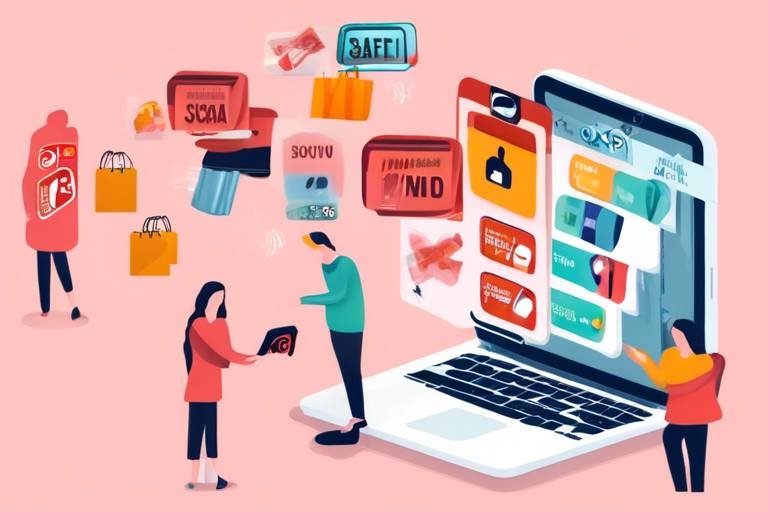What Tik-Tok Does with Your Data: The Lesser Known Dangers
In today’s digital age, where social media reigns supreme, TikTok has emerged as a cultural phenomenon. However, beneath the surface of catchy dances and viral challenges lies a more concerning reality: the extensive data collection practices of the platform. With millions of users sharing snippets of their lives, it’s crucial to understand how TikTok handles this information and the potential risks that come along with it.
TikTok collects a plethora of user data, which includes not only the videos you watch and the accounts you follow but also your location, device information, and even your browsing habits. This level of data collection is not unique to TikTok; many social media platforms engage in similar practices. However, the sheer volume and sensitivity of the data collected by TikTok raise significant privacy concerns. Users often remain blissfully unaware of the extent of this data harvesting, which can lead to a false sense of security regarding their digital footprint.
Understanding these data collection practices is crucial for users who wish to make informed decisions about their privacy and data security. For instance, TikTok utilizes algorithms that analyze user behavior to deliver personalized content. While this can enhance user experience, it also creates a complex web of data that can be exploited if it falls into the wrong hands. Imagine sharing a personal story in a video, only to find out that your data is being used to target you with ads for products you never intended to buy. This is the reality many users face when they engage with platforms like TikTok.
As users, we often take for granted the platforms we engage with, assuming that our data is protected. However, many TikTok users are unaware of how their personal information is handled. This lack of awareness can lead to significant privacy issues, especially considering the potential for data breaches that could compromise user safety. Just think about it: what would happen if your personal information, such as your phone number or email address, was leaked online? The implications can be dire, ranging from unwanted solicitations to identity theft.
Another alarming aspect of TikTok’s data practices is the potential sharing of user data with third-party companies. TikTok may share your information for various purposes, primarily advertising and analytics. This raises critical questions about consent and the extent to which users control their own information. Are you really aware of who has access to your data? Do you trust these third parties to handle your information responsibly? These are questions worth pondering as you scroll through your feed.
The platform’s ability to utilize user data for targeted advertisements is a double-edged sword. On one hand, targeted ads can enhance your experience by showing products and services that align with your interests. On the other hand, this practice can lead to manipulation of user behavior and preferences. It's a bit like being in a relationship where your partner knows all your likes and dislikes but uses that knowledge to steer you toward decisions that benefit them. It’s essential to recognize that while you might enjoy the tailored content, there are risks involved.
Understanding how long TikTok retains user data is equally important. The implications of prolonged data storage can pose significant risks to user privacy. For instance, if TikTok keeps your data indefinitely, it could be vulnerable to breaches or unauthorized access over time. Consider this: the longer your data is stored, the greater the chance that it could be misused. This is why it’s vital for users to be aware of TikTok’s data retention policies and to take proactive steps to protect their information.
The data collected by TikTok is not just a collection of numbers and statistics; it represents real people with real lives. Unfortunately, this data could be misused for malicious purposes, including identity theft and cyberbullying. Imagine someone using your personal information to impersonate you online or to harass you. The dangers associated with unauthorized access to personal information are very real, and they underscore the importance of understanding how your data is being used.
As concerns about data privacy grow, governments around the world are beginning to scrutinize TikTok’s practices. This section discusses the legal implications and potential regulations that could impact the platform. With increasing public awareness of data privacy issues, regulatory bodies are stepping up to ensure that companies like TikTok adhere to strict data protection standards.
The General Data Protection Regulation (GDPR) imposes strict rules on data handling, and TikTok is not exempt from these regulations. This subsection explores how TikTok aligns with GDPR and the challenges it faces in compliance. For instance, users in the European Union have specific rights regarding their data, including the right to access and delete their information. However, the effectiveness of these regulations in protecting user data remains a topic of ongoing debate.
As the digital landscape evolves, so do privacy laws. This section speculates on future regulations that could affect TikTok and similar platforms. With the rise of data breaches and privacy concerns, it’s likely that we will see more stringent regulations in the coming years. Users must stay informed and proactive in understanding their rights and the implications of these changes.
- What kind of data does TikTok collect? TikTok collects various data, including location, device information, and user interactions.
- Is my data shared with third parties? Yes, TikTok may share your data with third-party companies for advertising and analytics purposes.
- How can I protect my data on TikTok? Users can adjust their privacy settings and be mindful of the information they share on the platform.
- What are the risks of data misuse? Misuse of data can lead to identity theft, cyberbullying, and other malicious activities.

Data Collection Practices
When you scroll through TikTok, you're not just enjoying endless entertainment; you're also unwittingly sharing a treasure trove of personal information. TikTok's data collection practices are extensive and multifaceted, capturing everything from your location to your device specifications. But what does this really mean for you as a user? Understanding these practices is crucial because it empowers you to make informed decisions about your privacy and data security.
First off, let's break down some of the key types of data TikTok collects:
- Location Data: TikTok can track your geographic location through your device's GPS. This means that every time you post a video or engage with content, the platform knows where you are.
- Device Information: The app collects details about the device you’re using—think of your phone model, operating system, and even your unique device identifiers. This information can be used to create a digital fingerprint of your device.
- Browsing Habits: TikTok monitors your interactions within the app, including the types of videos you watch, how long you spend on them, and what you choose to like or share. This data helps TikTok tailor content to your preferences but also reveals a lot about your interests and behaviors.
But wait, there's more! TikTok also gathers data from your social media accounts if you link them, further expanding the scope of what they know about you. This means that your likes, follows, and even your friends can contribute to the profile TikTok builds around you. In a world where data is the new oil, TikTok is refining that oil into a highly detailed map of user behavior.
This extensive data collection isn't just about improving user experience; it raises serious questions about user privacy. For instance, how secure is this data? What happens if it falls into the wrong hands? And, perhaps most importantly, do users truly understand what they are giving up when they click "Accept" on those terms and conditions? The reality is, many people don’t read the fine print, and that lack of awareness can lead to significant risks.
As we dive deeper into the implications of these practices, it’s essential to consider how TikTok’s data collection fits into the larger picture of digital security. With data breaches becoming alarmingly common, the information TikTok collects could potentially be exploited by malicious actors. So, while you’re busy dancing and sharing your creativity, it’s worth pondering: at what cost?
In summary, TikTok’s data collection practices are extensive and complex, encompassing a wide range of personal information. This reality invites users to reflect on their digital footprints and the potential risks associated with sharing so much online. As we continue exploring the user privacy concerns surrounding TikTok, it becomes increasingly clear that knowledge is power—especially when it comes to protecting your personal data.

User Privacy Concerns
In today's digital age, where social media plays a pivotal role in our daily lives, the question of user privacy has never been more pressing. TikTok, with its engaging content and addictive features, has captured the hearts of millions. However, many users remain blissfully unaware of the privacy risks lurking beneath the surface. When you share your life through short videos and catchy dances, do you ever stop to think about who else is watching? The reality is that TikTok collects a treasure trove of personal information, and understanding how this data is managed is crucial for your safety.
Many users assume that their information is safe, but the truth is that the platform's data handling practices raise significant concerns. For instance, TikTok gathers not only your basic profile information but also details like your location, device information, and even your browsing habits. This extensive data collection can feel like a double-edged sword. On one hand, it allows TikTok to tailor your experience, showing you content that aligns with your interests. On the other hand, it opens the door to potential data breaches that could expose your personal life to malicious actors.
Imagine sharing your favorite moments with friends and family, only to find out that your data is being sold or misused by third parties. This is a valid concern, as many users are unaware of how their data is shared and utilized. TikTok’s privacy policy is often lengthy and filled with legal jargon, making it difficult for the average user to comprehend. As a result, users may unknowingly consent to terms that compromise their privacy.
The potential for data breaches is alarming. In recent years, numerous high-profile breaches have made headlines, highlighting how easily personal information can fall into the wrong hands. With TikTok's vast user base, the stakes are high. A breach could lead to the exposure of sensitive information, resulting in identity theft, financial loss, or even cyberbullying. The emotional toll of such incidents can be devastating, affecting not just the victim but also their loved ones.
To illustrate the gravity of these concerns, consider the following table, which outlines some common privacy risks associated with TikTok's data practices:
| Privacy Risk | Description |
|---|---|
| Data Breaches | Unauthorized access to user data, leading to potential exploitation. |
| Identity Theft | Personal information used to impersonate users for financial gain. |
| Cyberbullying | Exposure of personal details that can be used to harass or intimidate. |
| Targeted Manipulation | Using data to influence user behavior and preferences without consent. |
The implications of these risks are profound. Users must be vigilant and proactive in protecting their privacy. One way to do this is by regularly reviewing privacy settings and understanding what information they are sharing. Additionally, educating oneself about the platform's data policies can empower users to make informed decisions. Remember, the more you know, the better equipped you are to safeguard your digital footprint.
In conclusion, while TikTok offers a fun and engaging platform for creativity, it is essential to remain aware of the potential privacy pitfalls. By staying informed and cautious, users can enjoy their TikTok experience without compromising their personal safety. After all, your data is valuable—treat it like the treasure it is!

Third-Party Sharing
When it comes to data privacy, one of the most concerning aspects of TikTok's operations is its practice of sharing user data with third-party companies. You might be wondering, "What does that even mean for me?" Well, imagine giving someone your diary, trusting them to keep your secrets safe, only to find out they've been sharing your thoughts with their friends. That’s essentially what happens when your data is shared without your full understanding or consent.
Many users are blissfully unaware that their personal information, which includes everything from location data to browsing habits, can be handed off to various entities. These third parties often include advertisers and analytics firms that are eager to gather insights about user behavior. While this might seem harmless, it raises significant concerns about consent and control. Do you really know who has access to your data? And more importantly, do you trust them?
Here’s a quick breakdown of what TikTok might share:
- Demographic Information: Age, gender, and location.
- Usage Data: How often you use the app and what features you engage with.
- Device Information: Your device type, operating system, and even your IP address.
This sharing of data can lead to a cascade of privacy issues. For instance, if a third-party company experiences a data breach, your information could be exposed to malicious actors. This scenario is not just a hypothetical fear; it’s a reality that many users face across various platforms. The question then becomes: how much do you trust TikTok to protect your data, especially when it’s in the hands of others?
Moreover, the lack of transparency in these data-sharing practices can leave users feeling helpless. TikTok’s privacy policy may mention third-party sharing, but how many users actually take the time to read the fine print? It’s often buried in legal jargon that can be overwhelming and confusing. Therefore, understanding the implications of third-party sharing is crucial for anyone who uses the app. You have a right to know how your data is being used and who has access to it.
As we navigate this digital age, it’s essential to stay informed and vigilant. The more you know about how your data is shared, the better equipped you are to protect your privacy. Remember, your information is valuable, and you should treat it as such. So, the next time you scroll through TikTok, take a moment to consider what lies beneath the surface of those entertaining videos.
- What kind of data does TikTok collect? TikTok collects a range of data, including your location, device information, and usage habits.
- Can I stop TikTok from sharing my data? While you can adjust your privacy settings, complete prevention of data sharing may not be possible.
- What are the risks of third-party data sharing? Risks include potential data breaches and unauthorized access to your personal information.
- How can I protect my data while using TikTok? Regularly review your privacy settings and be cautious about the information you share on the platform.

Advertising Targeting
When you scroll through TikTok, it often feels like the app knows you better than your best friend. This is no accident; it's a result of sophisticated techniques that rely heavily on the data TikTok collects from you. The platform analyzes your interactions, the content you engage with, and even the time you spend on specific videos to curate a personalized feed that keeps you coming back for more. But have you ever stopped to think about what this means for your privacy?
At its core, advertising targeting is about maximizing engagement. TikTok uses algorithms to serve ads that are tailored to your interests based on your behavior on the app. This can enhance your experience, making it feel more relevant and enjoyable. However, this personalization comes at a cost—your data is being meticulously tracked and analyzed. The app collects a myriad of information, including:
- Your location data
- Device information
- Browsing habits
- Interaction patterns with content
While targeted ads can be seen as a convenience, they also raise questions about manipulation. For instance, how much influence do these ads have on your purchasing decisions? Are you truly making independent choices, or are you being subtly guided by the algorithm? This is where the fine line between personalization and manipulation blurs. It’s akin to walking through a maze where the walls shift based on your previous turns, making it increasingly difficult to find your way out without following the path laid out for you.
Moreover, the implications of such targeted advertising extend beyond mere consumer behavior. They tap into your psyche, shaping your preferences and even your identity. The more you engage with certain types of content, the more you reinforce that behavior, which can lead to an echo chamber effect. This raises ethical questions about user autonomy and the extent to which individuals are aware of their own consumption patterns. Are we being conditioned to like what we see because it’s what we’ve seen before?
In conclusion, while TikTok’s advertising targeting can enhance user experience by providing relevant content, it poses significant risks to your privacy and personal autonomy. Understanding how this process works is crucial for users to navigate the digital landscape safely. As you continue to engage with the app, it’s essential to remain vigilant about the information you share and the influence these targeted advertisements may have on your behavior.
- What kind of data does TikTok collect for advertising? TikTok collects data such as location, device information, browsing habits, and user interactions to create targeted advertisements.
- Can I opt-out of targeted advertising on TikTok? While you can adjust your privacy settings, completely opting out of targeted advertising may not be possible as TikTok uses this data to enhance user experience.
- How does TikTok's data collection compare to other social media platforms? TikTok's data collection practices are similar to other platforms, but the extent and nature of data used for advertising may vary.
- What should I do if I’m concerned about my privacy on TikTok? You can review your privacy settings, limit the information you share, and stay informed about how your data is being used.

Data Retention Policies
When it comes to , TikTok's practices raise several eyebrows. The platform has a responsibility to inform users about how long their data is kept and the purposes for which it is used. Generally, TikTok retains user data for as long as necessary to provide its services, which can include everything from enhancing user experience to complying with legal obligations. However, the lack of transparency in these policies often leaves users in the dark about what happens to their data once they decide to stop using the app.
Imagine you’re cleaning out your closet, deciding what to keep and what to toss. Now, think of TikTok as that closet, filled with your personal information. But instead of just clothes, it holds your preferences, interactions, and even sensitive data. How long will it keep those items? What if you decide to move? Will it still hold onto your old clothes? These are the questions every TikTok user should be asking.
According to TikTok's data retention guidelines, the platform may store user data for a variety of reasons, including:
- Service Improvement: To enhance user experience and optimize the platform.
- Legal Compliance: To adhere to applicable laws and regulations.
- Account Recovery: To assist users in recovering their accounts if they forget their credentials.
However, the real concern lies in the duration of this data retention. Users often assume that once they delete their accounts, all their data is wiped clean. Unfortunately, this is not always the case. TikTok may retain certain data even after account deletion, which is a point of contention among privacy advocates. The platform's vague language in its privacy policy can lead to misunderstandings about what users are actually agreeing to when they sign up.
To illustrate this further, here’s a simplified table showing the potential data retention timelines:
| Type of Data | Retention Period | Purpose |
|---|---|---|
| User Profile Information | Until account deletion | Service personalization |
| Content Interactions | Up to 12 months | Analytics and improvement |
| Deleted Account Data | Up to 30 days | Account recovery |
As you can see, the retention of data can vary significantly based on its type and purpose. This is why it’s crucial for users to familiarize themselves with these policies, as they directly impact their digital footprint. The more you know, the better you can protect yourself. Understanding these timelines not only helps in managing your expectations but also in taking proactive steps to safeguard your information.
In conclusion, TikTok's data retention policies serve as a double-edged sword. While they are designed to enhance user experience and comply with legal obligations, the lack of clarity can leave users vulnerable. It's essential for users to continually educate themselves about these practices, as knowledge is power in the ever-evolving landscape of digital privacy.
- How long does TikTok keep my data? TikTok retains user data for as long as necessary to provide its services, which can vary by type of data.
- Can I delete my data permanently? While you can delete your account, some data may still be retained for legal or service-related reasons.
- What happens to my data if I stop using TikTok? Some data may be kept for a certain period even after you stop using the app.
- How can I protect my data on TikTok? Familiarize yourself with TikTok's privacy settings and regularly review what data you are sharing.

Potential for Misuse
The data collected by TikTok is not just numbers and statistics; it represents a treasure trove of personal information that can be exploited in various ways. Think of it as a double-edged sword—while it can enhance your user experience, it also opens the door to significant risks. From identity theft to cyberbullying, the potential for misuse of this data is alarming.
To put things into perspective, consider the following scenarios where TikTok user data could be misappropriated:
- Identity Theft: Malicious actors can use personal information, such as your name, location, and even your browsing habits, to impersonate you. This can lead to unauthorized transactions, credit fraud, and a myriad of other issues that can take years to resolve.
- Cyberbullying: With access to personal details, bullies can target individuals with precision. They could easily find out where you live, your school, or even your daily routines, making it easier for them to harass or intimidate you.
- Scams and Phishing: Data collected can also be used to craft convincing phishing schemes. For example, if a scammer knows you’re a young adult interested in fashion, they might create a fake ad that appears to be from a popular clothing brand, tricking you into providing sensitive information.
Moreover, the implications extend beyond individual users. When aggregated, this data can be used to profile large groups, leading to targeted manipulation. Imagine being bombarded with ads that not only try to sell you products but also influence your opinions and behaviors based on your digital footprint. This kind of targeted advertising can feel eerily invasive, making you question where the line is between personalized content and manipulation.
In essence, the potential for misuse of TikTok's data collection practices is not just a hypothetical scenario; it is a real concern that users should be aware of. The more data that is collected, the larger the target becomes for those with malicious intent. As we navigate this digital landscape, it’s crucial for users to remain vigilant and proactive about their personal information. After all, in a world where data is currency, safeguarding your information is akin to protecting your wealth.
- What kind of data does TikTok collect? TikTok collects a variety of data, including user location, device information, browsing habits, and interaction with content.
- How can I protect my data on TikTok? You can protect your data by adjusting your privacy settings, being cautious about the information you share, and regularly reviewing your account activity.
- Does TikTok share my data with third parties? Yes, TikTok may share user data with third-party companies for advertising and analytics purposes.
- What are the risks of data misuse? Risks include identity theft, cyberbullying, and targeted scams, all of which can have serious consequences for individuals.

Legal and Regulatory Issues
As the digital age continues to evolve, the spotlight on data privacy is brighter than ever, and TikTok is no exception. With growing concerns about how user data is being handled, governments around the world are beginning to scrutinize TikTok’s practices closely. It's not just about what data is collected, but how it’s used, shared, and protected. The implications of these practices can be profound, affecting not only individual users but also the broader landscape of digital security.
One of the most pressing issues is the compliance with data protection regulations such as the General Data Protection Regulation (GDPR). This regulation, which is designed to protect the privacy of individuals within the European Union, imposes strict rules on how companies handle personal data. For TikTok, adhering to these regulations is not just a legal obligation but also a necessity to maintain user trust. However, the platform faces significant challenges in ensuring compliance. The complexity of its data collection practices raises questions about whether users are adequately informed about how their data is being used.
Moreover, TikTok's data retention policies are another critical aspect of the legal landscape. How long does TikTok keep your data? The answer to this question is essential for users who are concerned about their privacy. Prolonged data storage increases the risk of data breaches, which can lead to unauthorized access to personal information. In a world where identity theft and cyberbullying are rampant, understanding the implications of data retention can empower users to take control of their digital footprints.
As we look to the future, the landscape of data privacy regulations is likely to evolve further. With the rapid advancement of technology, regulators are adapting and creating new laws to address emerging challenges. This means that TikTok and similar platforms will have to stay ahead of the curve to ensure compliance. The potential for stricter regulations could lead to significant changes in how these platforms operate, prompting users to stay informed about their rights and the measures they can take to protect their information.
In summary, the legal and regulatory issues surrounding TikTok's data practices are complex and multifaceted. Users must be aware of their rights and the implications of the platform's data collection methods. As the conversation around data privacy continues to grow, it’s essential for everyone to remain vigilant and informed.
- What data does TikTok collect?
TikTok collects various types of data, including location, device information, and user interactions. - Is TikTok compliant with GDPR?
TikTok is working towards compliance with GDPR, but challenges remain in ensuring complete adherence. - How long does TikTok retain user data?
The duration of data retention can vary, and users should review TikTok's privacy policy for specific details. - What can users do to protect their data on TikTok?
Users can adjust their privacy settings, limit data sharing, and stay informed about updates to TikTok's policies.

Compliance with GDPR
The General Data Protection Regulation (GDPR) is a comprehensive data protection law in the European Union that was implemented to safeguard the privacy of individuals. For platforms like TikTok, compliance with GDPR is not just a legal obligation; it’s a significant aspect of building trust with users. TikTok collects a vast amount of personal data, and under GDPR, users have specific rights regarding this data. These rights include the ability to access their data, request corrections, and even demand deletion of their information.
However, the question arises: how well does TikTok comply with these stringent regulations? While the platform has made strides in aligning its practices with GDPR, there are still challenges that it faces. For instance, TikTok must ensure that users are fully informed about what data is being collected and for what purposes. This transparency is crucial, as many users may not realize the extent of data collection that occurs.
Moreover, TikTok has to implement robust measures to protect user data from breaches or unauthorized access. GDPR mandates that companies adopt appropriate technical and organizational measures to ensure a high level of data security. This includes encryption, regular security assessments, and prompt reporting of any data breaches. Failure to comply with these regulations can lead to hefty fines and damage to TikTok's reputation.
Here’s a brief overview of some key aspects of TikTok’s GDPR compliance:
| Aspect | Details |
|---|---|
| Data Access | Users can request access to their personal data collected by TikTok. |
| Data Correction | Users have the right to correct inaccurate data. |
| Data Deletion | Users can request the deletion of their data under certain conditions. |
| Data Breach Notification | TikTok must notify users of data breaches within 72 hours. |
In summary, while TikTok is taking steps to comply with GDPR, the effectiveness of these measures remains under scrutiny. Users should remain vigilant and informed about their rights and how their data is being used. As the digital landscape continues to evolve, so too will the expectations for data privacy and security. By staying informed, users can better protect themselves in an increasingly data-driven world.
- What is GDPR? GDPR stands for General Data Protection Regulation, a law designed to protect the privacy of individuals in the EU.
- How does TikTok collect my data? TikTok collects data through user interactions, device information, and location tracking.
- Can I delete my TikTok data? Yes, under GDPR, you have the right to request the deletion of your personal data.
- What happens if TikTok fails to comply with GDPR? Non-compliance can result in significant fines and legal actions against the company.

Future of Data Privacy Regulations
As we navigate through the ever-evolving digital landscape, the conversation surrounding data privacy regulations is becoming increasingly vital. With platforms like TikTok at the forefront, users are left wondering how their data is being handled and what protections are in place. The future of data privacy regulations is not just a legal matter; it's a pressing concern for millions of users around the globe.
One of the most significant trends we can anticipate is the introduction of stricter regulations that aim to enhance user privacy and data protection. Governments and regulatory bodies are recognizing the need for comprehensive frameworks that govern how companies collect, store, and utilize personal information. For instance, the General Data Protection Regulation (GDPR) in Europe has set a precedent, and other regions may follow suit with similar laws.
Moreover, there’s a growing push for transparency in data practices. Users are increasingly demanding to know what data is being collected and how it's being used. This has led to discussions about implementing more user-friendly privacy policies that are easy to understand. Imagine a world where you can easily navigate through a platform’s data practices, much like flipping through a user manual for a new gadget. It should be straightforward, right?
Additionally, we might see the emergence of data portability laws, which would allow users to take their data from one platform to another seamlessly. This could empower users by giving them more control over their personal information and how it’s shared. Think of it as transferring your playlist from one music app to another without losing your favorite songs. The potential for user empowerment is immense!
However, with the rise of these regulations, companies will face new challenges. They will need to invest in compliance measures, which could lead to increased costs. This raises an interesting question: will these costs be passed on to consumers? As companies adapt to these new rules, users might see changes in pricing structures or even the introduction of new features designed to comply with privacy standards.
In conclusion, the future of data privacy regulations is likely to be shaped by a combination of user demand, technological advancements, and legislative action. As users, we must stay informed and proactive about our digital rights. After all, in a world where our data is currency, understanding how to protect it is not just smart—it's essential.
- What is data portability? Data portability refers to the ability of users to transfer their personal data from one service provider to another easily.
- How does GDPR affect TikTok? The GDPR imposes strict guidelines on how companies handle user data, requiring them to ensure user consent and provide transparency about data usage.
- Will new regulations affect the cost of using apps like TikTok? It’s possible that companies may pass on compliance costs to users, which could lead to changes in pricing or service offerings.
- What can users do to protect their data? Users should regularly review privacy settings, stay informed about data practices, and use privacy-focused tools and services.
Frequently Asked Questions
-
What types of data does TikTok collect from users?
TikTok collects a wide range of data, including your location, device information, browsing habits, and even your interactions with content on the platform. This extensive data collection helps TikTok improve user experience but raises significant privacy concerns.
-
How does TikTok use the data it collects?
The data collected is primarily used for enhancing user experience through targeted advertisements and personalized content. However, this also means that your behavior and preferences can be manipulated based on the data TikTok gathers about you.
-
Is my personal information shared with third parties?
Yes, TikTok may share your data with third-party companies for advertising and analytics purposes. This sharing raises questions about user consent and the level of control users have over their own information.
-
What are the risks of TikTok's data retention policies?
TikTok retains user data for extended periods, which can pose risks to your privacy. The longer your data is stored, the higher the chances of it being accessed by unauthorized parties or misused in malicious ways.
-
What should I know about TikTok and data privacy regulations?
As scrutiny over data privacy grows, TikTok is facing increased regulatory attention. It’s crucial to stay informed about how TikTok complies with regulations like the GDPR and what future laws may impact its data handling practices.
-
How can I protect my data while using TikTok?
You can enhance your data privacy by adjusting your privacy settings within the app, being cautious about the information you share, and regularly reviewing your permissions. Staying informed about TikTok's data practices is also essential for safeguarding your personal information.



















